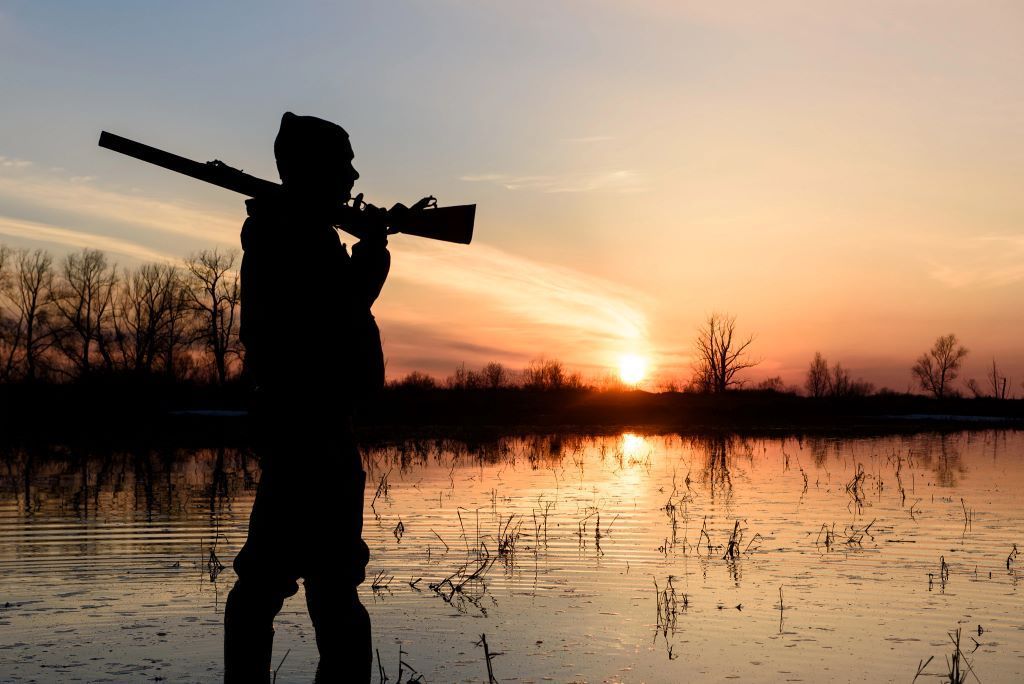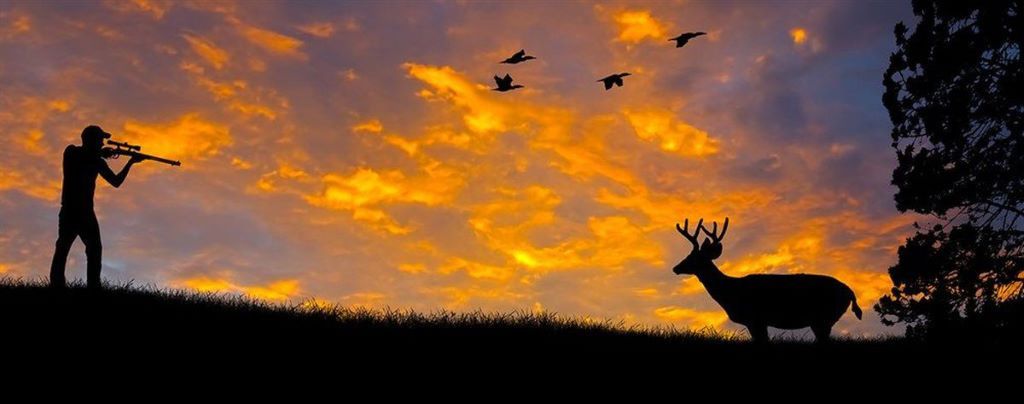
15 Dec How Do Game Conservation Laws Affect Hunters
Hunting is a popular pastime and sport for millions of people across the country. However, without proper conservation laws and regulations in place, many game animal populations would be in danger. Conservation laws play a crucial role in managing wildlife populations and establishing guidelines for ethical hunting practices. If you’re a hunter, you might be interested in discovering how do game conservation laws affect hunters. On one hand, these laws can offer protections for certain species and their habitats, but on the other hand, they can also impact your ability to access hunting lands and bag game.
Benefits of Conservation Laws for Hunters
Conservation laws around hunting aim to preserve and restore healthy wildlife populations. For hunters, there are some clear advantages to having these protections in place:
Sustained Hunting Opportunities
One of the main goals of conservation laws relating to hunting is to create sustained, long-term hunting opportunities. By managing population sizes and dynamics, game animals can thrive rather than disappear from over-hunting or loss of habitat. With abundant game species to pursue, hunters have more access and better chances of harvesting animals year after year.

Preservation of Habitat
In addition to managing wildlife populations directly, conservation policies also focus on protecting habitats. By preserving wetlands, forests, grasslands, and desert ecosystems, game animals have the food, shelter, breeding grounds and migration routes they need to flourish. In turn, hunters also benefit from having intact habitat to access and explore.
Regulation of Practices
Conservation laws around hunting also strive to encourage ethical, lawful practices that don’t give unfair advantage to hunters. Things like banning high-tech hunting gear, restrictions on baiting game, limits on hunting from vehicles, and outlawing captive hunts aim to make the sport more challenging and ethical. Most hunters support fair chase policies.
Generation of Funding
An indirect advantage of conservation hunting laws is that permits, licenses, stamps and tags generate funding. This money goes towards protecting habitat, enforcement operations, scientific research and the management of public lands specifically for hunting. By contributing funds, hunters play a part in promoting sustainability.
Preservation of Tradition
Lastly, with the regulation and oversight of hunting, this tradition and sporting lifestyle is preserved for generations to come. Conservation policies allow for the continued cultural practice of hunting, which many view as a core part of their regional heritage. Without sustainably managing game species and habitat, hunting’s future would be uncertain.
Downsides of Conservation Laws for Hunters
At the same time, dealing with hunting regulations, restrictions and quotas can prove frustrating, inconvenient and costly at times for sportsmen and women. Here are some of the disadvantages hunters face:
Access Limitations
One of the biggest issues conservation laws create for hunters is restricting access to certain public and private lands. Wildlife refuges, parks, and protected wilderness areas are often off limits. Some landowners close off their acreage to avoid dealing with regulations. This vastly reduces the areas available to track and shoot game.
Shortened Seasons
To prevent overharvest and allow animals to breed, conservation policies often shorten hunting seasons. Sometimes there are also protections around harvesting females, juveniles and young of the year. With condensed seasons and decreased tags, the window to hunt is much smaller.
Lotteries & Limited Permits
When game populations are struggling in certain regions, conservation agencies institute permit lotteries and caps on tags issued. The available spots are then rationed out based on randomized drawings. For hunters this can mean no guarantee of securing a permit or needing to apply year after year before winning.
Quotas & Reduced Bag Limits
Along with limited permits, conserved species often have quotas for total number or tags allocated each season. Bag limits per hunter are also downsized. This restricts how many animals someone can legally harvest, reducing a hunter’s chances of taking something home.
Added Expense
To fund habitat projects and wildlife management with conservation funding, the cost of licenses, stamps and permits continues to rise. There may also be required hunters education courses, fees for access to certain public lands, guide services, equipment requirements, and taxes on firearms and ammunition. Hunting has become an increasingly expensive recreational activity.
Steep Penalties
Finally, violating conservation hunting laws leads to even steeper criminal penalties – from significant fines up to felony charges and jail time. Hunting out of season, in prohibited areas, without the proper tags or harvest reporting can all lead to trouble with authorities. The punishments often far outweigh those for general trespassing or vagrancy violations.
Key Conservation Laws that Impact Hunting

Now that we’ve examined some of the pros and cons of conservation laws, let’s look at a few of the most influential policies that shape hunting regulation across the United States:
Federal Acts & Programs
- Pittman-Robertson Act of 1937 – Instituted an excise tax on firearms, ammunition, bows and arrows to provide funds specifically for state-level conservation efforts.
- Federal Duck Stamp Program (1934) – Waterfowl hunters 16 years of age and older are required to purchase an annual federal duck stamp. Proceeds go towards protecting and acquiring waterfowl habitats.
- Lacey Act (1900) – Bans illegal trafficking of wildlife and plants, preventing market hunting. Stipulates civil and criminal penalties. Requires permits for certain imports and exports of protected species.
State Wildlife Agencies
State agencies manage local wildlife populations and habitats. They are responsible for establishing hunting (and fishing) regulations each year in accordance with conservation objectives. State DNRs, Fish & Game Commissions, etc. may implement:
- Hunting seasons, quotas and bag limits for game species
- Requirements around hunter safety certificates and education
- Permit, tag and lottery systems for drawing hunts
- Access rules for public and private lands
- Penalties for violations
Private Land Protections
There are also a variety of conservation easements landowners can place on private property to restrict development and protect wildlife habitats in exchange for certain tax advantages. By keeping lands undeveloped in agricultural use and enhancing habitats, farms and ranches enrolled in these programs boost opportunities for hunters while shielding species. Some examples policies include:
Conservation Reserve Program – Pays owners to take sensitive cropland out of production and plant species that benefit wildlife. Contracts 30 years in length.
Wetlands Reserve Program – Landowners receive payment and technical help restoring and protecting wetlands via permanent and 30-year easements or restoration cost share agreements.
The regulations imposed by federal agencies, state governments, and conservation organizations play an integral role in modern hunting management. These policies allow for the sustainable take of game species by moderating practices, developing habitat, protecting populations, and funding research through hunter dollars.
While no one likes added red tape and limitations, most sportsmen and women understand the need to be stewards of the outdoors to ensure the continuation of their beloved pastime. They respect seasons, limits and fair chase ethics as a necessary sacrifice. Over a century of conservation efforts prove that collaboration between hunters and wildlife managers leads to positive outcomes for all.
Frequently Asked Questions
- How do hunting regulations affect public land access?
Hunting laws often restrict access to certain public lands like parks, refuges and wilderness areas while providing hunters priority on designated public hunting lands, wildlife management areas and state game lands funded through license sales.
- Are there national hunting laws?
There are no overarching national hunting laws but the federal government can intervene to protect endangered species and regulate imports/exports. Otherwise states manage their own wildlife policies.
- Do hunting regulations apply to private property?
Private lands are still subject to statewide hunting seasons, bag limits and means of take enforced by game wardens. But landowners or leaseholders can impose further restrictions on hunting their properties.
- Have hunting laws created more big game opportunities?
Yes, conservation policies aimed at herds of elk, whitetail deer, pronghorn antelope and bighorn sheep have allowed populations to flourish, to the benefit of hunters.
- How can hunters stay up to date on changing regulations?
State wildlife agencies provide annual hunting regulation booklets. Hunters can also reference online resources that compile state-by-state hunting laws, take part in public comment periods on regulation changes, and connect with hunter advocacy groups.
In the end
Conservation laws around hunting aim to balance protecting habitats and managing wildlife populations while still allowing sustainable levels of hunting. When it comes to influencing regulations, hunters are in a unique position as conservationists. The license fees, excise taxes and permit application costs hunters pay provide critical funding for land management and research to preserve species.
While no one loves adhering to limiting quotas, permits, shorter seasons and inconsistent access, most hunters want to see populations thrive. If game animals and their habitat disappear, so does their beloved sport. By complying with hunting policies, being ethical stewards of the land and supporting conservation efforts, hunters play a leading role in sustaining wildlife and wild places for generations to come. With landowners and lawmakers on board to promote habitat projects and protect sensitive areas, hunters sacrificing some freedoms now will continue a longstanding tradition. Our shared conservation legacy depends on it.


No Comments